Our guide to recycling single-use plastics
Date published: 14 July 2018
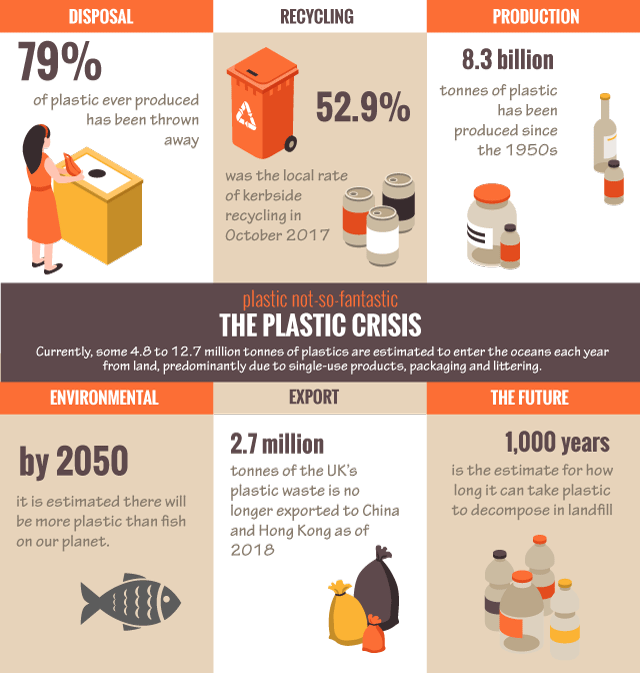
The plastic crisis
Plastic is a versatile material which covers a multitude of products – sometimes quite literally - from plastic bottles to pots and polythene packaging, it can be difficult to know what can be recycled, and where.
Since the 1950s, approximately 8.3 billion metric tonnes of plastic have been produced. Of this, just 9% is recycled, with an eye-opening 79% having been thrown away. The rest is incinerated – and, it is estimated by 2050, there will be more plastic than fish on the planet.
A vast amount of plastic waste ends up in waterways and oceans, breaking down into microplastics, tiny fragments (<5mm) of plastic particles, which can be ingested by marine life.
Aside from the finite landfill space, plastic is a blight on the very environment it pollutes, estimated to take anywhere up to 1,000 years for plastic to decompose in landfill.
Some preventative action is taking place nationally, small battles in the war on plastic with the 5p bag levy, the UK ban on microplastic beads in cosmetics, bring-your-own containers for meat counters and paper bags for fruit and veg, but just what else can be done locally to avoid these single-use scourges?
The best thing is to refuse plastics, or re-use to avoid more, but when this just isn’t an option, recycling can avoid further draining of the world’s resources.
With so much conflicting advice, here is our handy guide to recycling those hard-to-recycle plastics from coffee pods and carrier bags to makeup and pens, and everything in between - perfect for the 'Plastic Free July' campaign.
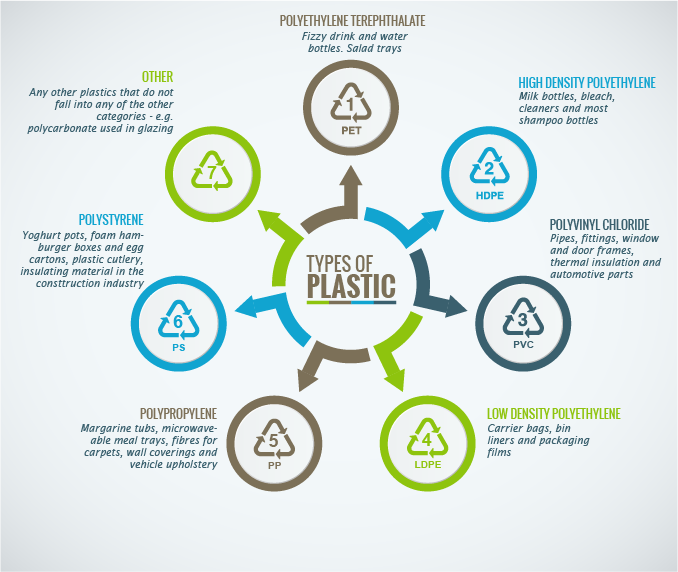
What can go in my mixed recycle bin?
In the Rochdale borough, a plastic bottle without a lid is the only plastic you can recycle in the mixed waste bin or one of the recycle bins through the centre. Any other form of plastic, be it a yoghurt pot, fruit punnet, tub or tube is not accepted at all.
A spokesperson for the council said: “We are in contract with GMWDA, as are all authorities across Greater Manchester, please see below a statement from the GMWDA on this, as always we are totally committed to recycling in our borough as are residents.
"We only accept plastic bottles for recycling across Greater Manchester. A bottle and a food tray are made of the same type of plastic but not the same grade of plastic, therefore the grades of plastic will behave differently when they are recycled, as they melt at different temperatures.
"Our technology (MRF) cannot sort between the different grade of plastics, and so they can not be recycled together.
"There are really good reasons why we can only recycle plastic bottles in Greater Manchester.
- Manufacturers that make new products demand high grade plastics. High grade equals plastic bottles.
- Plastics like yoghurt pots, margarine tubs and plastic trays (pots tubs and trays) are a low grade plastic and the manufacturers just do not want these.
- Our sorting machines cannot sort between plastic pots, tubs and trays and plastics bottles. This means that the low grade plastic pots, tubs and trays contaminate the high grade plastic bottles.
- During the recycling process the plastic is melted. A plastic pot, tub, tray and a plastic bottle melt at different temperatures, meaning the pots, tubs and trays contaminate the bottles and the batch cannot be used to make new products.
- Other areas may collect plastic pots, tubs and trays but currently very little are being recycled with most of it being turned into green energy.
"Plastics pots, tubs and trays do not go to waste. Residents are asked to put them in their general rubbish bin and they are turned into green electricity.”
However, if you live in Whitworth, bins are collected by Rossendale Council and have different criteria. Here clean and empty plastic bottles, tubs and pots can be recycled. Again, lids and tops must be removed.
TetraPak cartons cannot be recycled at all in Whitworth and Rossendale, but are accepted in the blue paper bin in Rochdale.
UPDATE: From December 2018, Tetra Pak cartons can be recycled again through the blue paper bin after being stopped in July 2018:
Friends in the neighbouring areas can team up to swap their non-recyclables.
Takeaway coffee cups
Disposable coffee cups fell under scrutiny when celebrity chef Hugh Fearnley-Whittingstall took to the screen in 2016 with his ‘war on waste’ revolution. Due to the heat and leak-proof mix of plastic and paper in their lining, more than 99.75% of cups are destined for landfill.
However, in a ‘cup recycling revolution,’ Costa Coffee pledged to recycle as many as 500million disposable cups by 2020 – including cups from rival coffee houses.
Where can I recycle this?
Costa Coffee, Rochdale Exchange Shopping Centre
Plastic bags
Whilst Modbury in Devon was the first town to become plastic bag-free in May 2007, other bans and taxes had already been in place for a significant period of time; the oldest existing bag tax in the world was introduced in 1994 in Denmark, and Bangladesh became the first country in the world to ban the thin carrier bags in 2002.
Since the bag charge was introduced, The Guardian says usage of the single-use bags has been reduced by 85%, with the levy going to fund thousands of community projects nationwide.
Bagless deliveries when shopping online can also be chosen.
Where can I recycle this?
Larger supermarkets generally offer a facility to recycle carrier bags in store. Tesco and Sainsbury’s offer bag recycling in store and if you shop online, delivery drivers will accept unwanted plastic bags for recycling.
Both Asda and Morrison's offer plastic bag recycling in all stores.
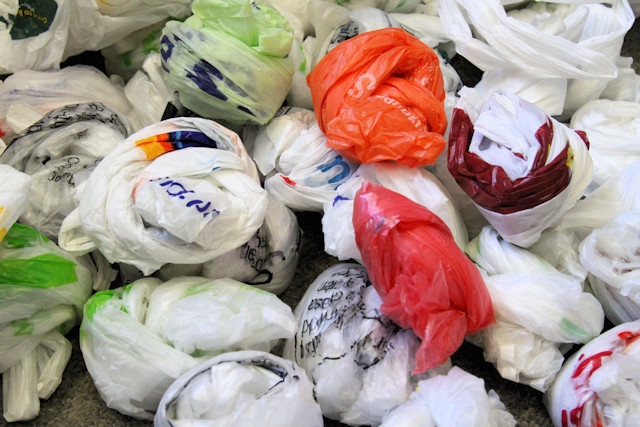
Other plastic bags/plastic films
Bread bags, toilet and kitchen roll wrappers, cereal bags, plastic freezer bags, thin bags for fruit and vegetables, magazine and newspaper wrapping, plastic multipack drinks wrappers and ring joiners, bubble wrap and any type four plastics can be recycled at carrier bag collection points. Some bags for frozen foods can also be included.
Typically, thin and stretchy polythene can be recycled, whilst crinklier varieties cannot. Cling film, food and drink pouches, crisps packets and ready meal film lids cannot be accepted and must go in the general waste bin.
Always check the label and with the manufacturer as some can be recycled in store with carrier bags, despite the ‘cannot be recycled’ claim on the label.
Where can I recycle this?
At any carrier bag collection point in larger supermarkets.
Coffee pods and capsules
A recent phenomenon described as ‘an environmental disaster,’ many homes and offices use single-use coffee pods. In 2015, the Independent claimed 186 million capsules were used in the UK alone, so it’s hardly surprising that American inventor John Sylvan regrets his creation and no longer uses it.
Frustratingly, the recycle rate on coffee pods is low, with main brands in the UK being offered by Nespresso, Tassimo and Nescafé Dolce Gusto.
Where can I recycle this?
Currently nowhere in the borough accepts coffee pods for recycling.
If you have a Nespresso machine, these cups can be returned in a special recycling bag via Collect+ or at a Nespresso Boutique. Collection and a recycle bag can be requested from Nespresso.
However, there are a couple of public drop-off schemes for Tassimo outside the borough - the nearest are based at the RSPCA charity shop in Hebden Bridge and Mytham Primary School in Bolton.
Both operate the TerraCycle programme, accepting Tassimo t-disc pods and their outer wrappers, L’Or capsules, Kenco Eco Refill packs and Kenco coffee jar lids.
Unfortunately, Nescafé Dolce Gusto pods currently are not accepted for recycling anywhere in the UK.
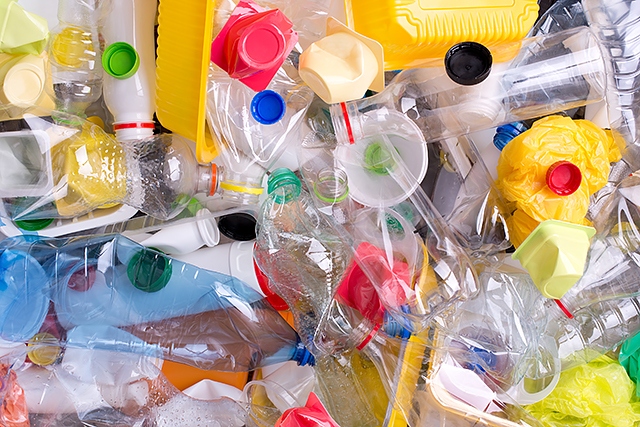
Bottle caps
Bottle caps cannot be recycled at a local level as they are made of a different kind of plastic to their containers. However, ethical cosmetic company Lush does accept most kinds of bottle caps in store, transforming them into their own recognisable black pots, which are also accepted for recycling. Sport caps are not accepted.
Where can I recycle this?
The nearest Lush is located at The Rock in Bury.
Cosmetic packaging
From lipstick tubes to compacts, some companies offer a free product in exchange for a number of empty containers, but what about those that are not accepted?
Origins now accepts all packaging from all cosmetic brands for recycling, as long as they are clean and empty.
Where can I recycle this?
There are no Origins counters in Rochdale, but there are two in Manchester city centre at House of Fraser and Boots.
Other
Disposable wipe packets, trigger sprays, pumps, plastic air freshener packaging and cartridges, cracker and biscuit wrappers, pens, hair dye kits, toothpaste tubes, roll-on deodorants, plastic pots and flexible tubes, single use mask packaging and blue plastic films used in such products.
Where can I recycle this?
TerraCycle offer several free programmes called ‘brigades’ to recycle all the above items, which must be clean, dry and free from residue. There is no minimum weight on postage and you can collect these in the comfort of your own home.
Always check the label and with Terracycle as some items may be able to be recycled, despite the ‘cannot be recycled’ claim on the label.
Parkfield Primary School in Middleton is also taking steps to become the first drop-off in the borough to accept pens for recycling.
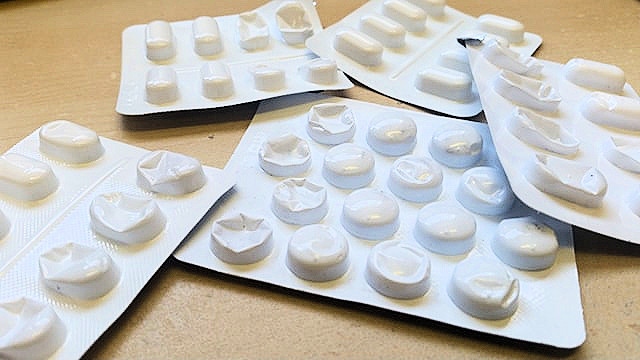
What plastics cannot be recycled at all?
Empty blister packs for medicines, plastic films from ready meals, most black packaging from food products (it cannot be picked up by scanners), Styrofoam, polystyrene, plastic packets on dried goods such as lentils and pasta, straws.
So what should I do with them?
Until things change, advice is to throw these in the general waste bin, which, in the borough, is turned into green electricity, and in Whitworth, goes to the landfill site in Accrington.
What else can be done?
Contact the manufacturers of these products, asking for more sustainable alternatives, pick up and recycle any litter that you see, bring your own containers and straws, refuse single-use plastics where you can, reuse where possible and switch to similar products in better packaging.
Take measures where you can and set up a communal collection point at in your neighbourhood, at work or school.
The problem would be arguably easier to tackle if items came in recyclable packing in the first place, or even none at all.
- - - - -
Read more about the not-so-fantastic side of plastic:
- https://www.rochdaleonline.co.uk/news-features/2/news-headlines/115049/binning-the-plastic
- https://www.rochdaleonline.co.uk/news-features/2/news-headlines/115280/tony-lloyd-welcomes-war-on-plastic
Have anything to add to this list?
Contact the News Desk:
Do you have a story for us?
Let us know by emailing news@rochdaleonline.co.uk
All contact will be treated in confidence.
Most Viewed News Stories
- 1Royton haulage firm fined after Rochdale dad went to work and didn’t come home
- 2Six men arrested in Rochdale child exploitation investigation
- 3Newhey's Char Steakhouse and Bank Chamber close with immediate effect
- 4Two men arrested after police chase ends up in Middleton river
- 5Obituary: Jean Ashworth
To contact the Rochdale Online news desk, email news@rochdaleonline.co.uk or visit our news submission page.
To get the latest news on your desktop or mobile, follow Rochdale Online on Twitter and Facebook.


